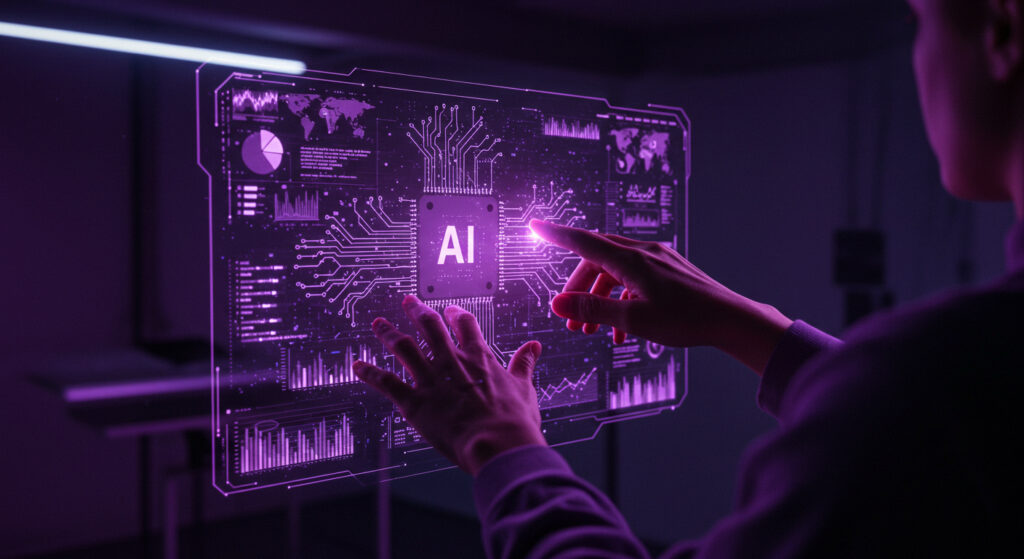DevOps, a portmanteau of Development and Operations, emerged as a cultural and professional movement to break down silos between software development and IT operations teams. Its goal has always been to shorten the systems development life cycle and provide continuous delivery with high software quality. Over the years, DevOps has evolved significantly, driven by new technologies, changing business demands, and a deeper understanding of how to build and operate software efficiently and reliably. This post explores the evolution of DevOps, focusing on key advancements in Continuous Integration/Continuous Delivery (CI/CD), the rise of DevSecOps, and the ongoing pursuit of more streamlined and effective development practices.
From Silos to Synergy: The Genesis of DevOps
Traditionally, development teams focused on building features, while operations teams were responsible for deploying and maintaining the software in production. This often led to friction, miscommunication, and lengthy release cycles. Developers wanted to release new features quickly, while operations prioritized stability and reliability. DevOps aimed to bridge this gap by fostering a culture of collaboration, shared responsibility, and automation.
Core principles that defined early DevOps included:
- Culture: Emphasizing collaboration, communication, and shared ownership between Dev and Ops.
- Automation: Automating repetitive tasks in the software delivery pipeline, such as builds, testing, and deployments.
- Measurement: Continuously measuring performance and gathering feedback to identify areas for improvement.
- Sharing: Sharing knowledge, tools, and best practices across teams.
The Evolution of CI/CD: The Engine of DevOps
Continuous Integration (CI) and Continuous Delivery/Deployment (CD) are foundational practices in DevOps, enabling rapid and reliable software releases.
- Continuous Integration (CI): Developers frequently merge their code changes into a central repository, after which automated builds and tests are run. This helps detect integration issues early and often.
- Evolution: CI has evolved from simple nightly builds to sophisticated pipelines triggered on every code commit. Modern CI tools (e.g., Jenkins, GitLab CI, GitHub Actions, CircleCI) offer extensive plugin ecosystems, parallel execution, and better integration with various development tools.
- Continuous Delivery (CD): Extends CI by automating the release of software to various environments (staging, production) after it passes automated tests. The actual deployment to production might still involve a manual approval step.
- Continuous Deployment (CD): Takes Continuous Delivery a step further by automatically deploying every change that passes all stages of the production pipeline to production, without manual intervention.
- Evolution: CD pipelines have become more sophisticated, incorporating advanced deployment strategies like blue/green deployments, canary releases, and A/B testing. These strategies minimize risk and allow for gradual rollouts. Infrastructure as Code (IaC) has become integral to CD, enabling automated provisioning and configuration of environments.
Key advancements in CI/CD include:
- Pipeline as Code: Defining CI/CD pipelines using code (e.g., YAML files) stored in version control. This allows for versioning, reusability, and easier management of pipelines.
- Containerization and Orchestration: Technologies like Docker and Kubernetes have revolutionized CI/CD by providing consistent build and deployment environments and simplifying the management of microservices.
- Cloud-Native CI/CD: Leveraging cloud platforms for scalable and on-demand CI/CD infrastructure. Many cloud providers offer their own managed CI/CD services.
- AI and ML in CI/CD: Emerging trends include using AI/ML to optimize build times, predict test failures, and identify risky code changes.
The Rise of DevSecOps: Integrating Security into DevOps
As DevOps practices matured, a critical realization emerged: security needed to be integrated throughout the entire software lifecycle, not just bolted on at the end. This led to the rise of DevSecOps, which stands for Development, Security, and Operations. The core idea is to make security a shared responsibility and to automate security practices within the DevOps pipeline.
Key principles of DevSecOps:
- Shift Left: Integrating security earlier in the development process (i.e., “shifting security to the left”).
- Security as Code: Automating security controls, tests, and policies using code.
- Automation: Automating security testing (SAST, DAST, IAST, RASP), vulnerability scanning, and compliance checks within the CI/CD pipeline.
- Continuous Monitoring: Continuously monitoring applications and infrastructure for security threats in production.
- Collaboration: Fostering close collaboration between development, security, and operations teams.
- Common DevSecOps practices include:
- Static Application Security Testing (SAST): Analyzing source code for vulnerabilities before compilation.
- Dynamic Application Security Testing (DAST): Testing running applications for vulnerabilities.
- Interactive Application Security Testing (IAST): Combining SAST and DAST approaches by instrumenting the application.
- Runtime Application Self-Protection (RASP): Enabling applications to detect and block attacks in real-time.
- Software Composition Analysis (SCA): Identifying and managing vulnerabilities in open-source components.
- Secrets Management: Securely managing API keys, passwords, and other sensitive credentials.
- Compliance as Code: Automating compliance checks and evidence gathering.
Further Evolutions and Future Trends in DevOps
DevOps continues to evolve, with new concepts and practices emerging:
- Site Reliability Engineering (SRE): Popularized by Google, SRE is a discipline that incorporates aspects of software engineering and applies them to infrastructure and operations problems. SREs focus on reliability, performance, and automation, often working closely with DevOps teams.
- GitOps: A way of implementing Continuous Delivery for cloud-native applications. It uses Git as a single source of truth for declarative infrastructure and applications. Changes to the desired state in Git are automatically reflected in the production environment.
- AIOps (AI for IT Operations): Applying AI and machine learning to automate and enhance IT operations. This includes tasks like anomaly detection, predictive analytics for incident prevention, and automated root cause analysis.
- Value Stream Management (VSM): Focusing on optimizing the flow of value from idea to end-user. VSM platforms provide visibility into the entire software delivery lifecycle, helping to identify bottlenecks and inefficiencies.
- Platform Engineering: The discipline of designing and building toolchains and workflows that enable self-service capabilities for software engineering organizations in the cloud-native era. This aims to reduce cognitive load on developers and improve their productivity.
For those interested in staying updated with the latest in DevOps, resources like the DevOps Institute and conferences such as DevOps Enterprise Summit offer valuable learning opportunities.
247Labs: Championing Efficient Development with Advanced DevOps Practices
At 247Labs, we understand that efficient and reliable software delivery is crucial for business success in the digital age. We embrace DevOps principles and leverage the latest advancements in CI/CD and DevSecOps to help our clients streamline their development processes, improve software quality, and accelerate time-to-market.
Our DevOps support and expertise include:
- Streamlining Software Development Lifecycle: 247Labs enables businesses to optimize their entire software development lifecycle through comprehensive DevOps support. We help implement robust CI/CD pipelines tailored to your specific needs, automating builds, testing, and deployments.
- Automation and Cloud Deployment: Our expertise in automation extends to infrastructure provisioning (Infrastructure as Code) and cloud deployment, ensuring faster delivery, improved collaboration, and operational efficiency. We are proficient in leveraging cloud platforms for scalable and resilient DevOps infrastructure.
- Integrating Security (DevSecOps): We believe in building security into the development process from the start. Our DevSecOps practices include integrating automated security testing, vulnerability management, and compliance checks into your CI/CD pipelines, ensuring that your applications are secure by design.
- Cloud-Native Development: Our cloud-native development services inherently rely on strong DevOps practices to manage microservices, containerized applications (using Docker and Kubernetes), and serverless architectures effectively.
- Custom Software and Application Development: Whether we are building custom mobile apps, web applications, or enterprise software, our development processes are underpinned by DevOps principles to ensure quality, speed, and reliability.
By partnering with 247Labs, you gain access to a team that is not only skilled in software development but also deeply knowledgeable in modern DevOps practices. We help you build a culture of collaboration and continuous improvement, enabling you to deliver value to your users faster and more reliably.
The Continuous Journey of DevOps
DevOps is not a destination but a continuous journey of improvement and adaptation. As technologies and business needs evolve, so too will DevOps practices. The focus will remain on breaking down barriers, automating processes, integrating security, and ultimately, enabling organizations to deliver high-quality software more efficiently. By embracing the ongoing evolution of DevOps, businesses can stay agile, innovative, and competitive in an ever-changing digital world.
Looking to optimize your software development lifecycle and embrace the latest in DevOps? Contact 247Labs today to learn how our DevOps expertise can transform your development practices and accelerate your business growth.






